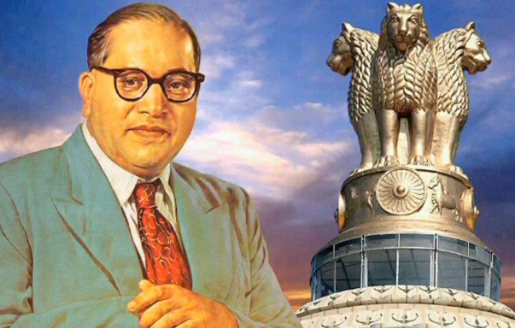Heed Ambedkar’s Fears on Erosion of ECI's Credibility

File photo
As the nation celebrates Ambedkar’s birth anniversary on April 14, a few days before the commencement of the 2024 general elections, his fears expressed in the Constituent Assembly on June 16,1949, that the Election Commission of India (ECI) might “come under the thumb of the executive” and lose its independence has come true.
This has been proved by the CSDS-Lokniti poll which brought to the public domain the worrying statistics that 58% of the respondents said they had some or great distrust in the functioning of the ECI. Such lack of credibility expressed by a whopping 58% of the respondents testifies to the massive erosion of the independence and impartiality of the ECI, which is entrusted with the responsibility of conducting free and fair elections, held by the Supreme Court as the basic structure of the Constitution.
When ECI Commanded People’s Trust
As many as 26 years ago, on the occasion of the celebration of the golden jubilee celebrations of the ECI in 2000, the trust of people in it was far above the trust they had on police, the bureaucracy, political parties, the Central government, local self-government and even the judiciary. This was revealed in a public opinion poll conducted that year. The President of India, K R Narayanan, while inaugurating the ECI’s golden jubilee celebrations referred to that poll and extended congratulations to the then Chief Election Commissioner and his colleagues by saying “You… can be proud of the high estimation the Indian public of the institution you head”.
Doubts Over EVMs
Had President Narayanan been alive today, he would have been deeply disturbed to see the steep fall of the ECI’s credibility, as revealed by CSDS-Lokniti survey. Apart from the sharp questions raised about the integrity of ECI, the survey flagged another worrying issue, that 45% people surveyed were of the opinion that there is likelihood that electronic voting machines or EVMs could be manipulated by the ruling party to a great extent or somewhat considerable level.
Servile Commission
In March 2023, a constitution bench of the Supreme Court delivered a unanimous order on the appointment of Election Commissioners and CEC with profound implications. It ruled that a committee of the Prime Minister, Leader of Opposition in the Lok Sabha (or leader of the largest Opposition party) and Chief Justice of India would henceforth select persons for appointment by the President of India as election commissioners and the Chief Election Commissioner (CEC).
The apex court gave that order because, as per the mandate enshrined in Article 324(2) of the Constitution, the CEC and ECs shall be appointed by the President “subject to the provisions of any law” passed by Parliament.
Till 2024, no law existed and hence, the ECs and CECs were appointed by the President on the recommendation of the Prime Minister. In the above judgement the SC made some critical remarks that in the absence of such a law, the governments formed at the Centre by different political parties had complete monopoly for appointing the ECs and CEC.
“A law”, the SC remarked, “cannot be the perpetuation of what is existing, of the Executive having an absolute say in appointments”. It then incisively observed, “A party in power will have an insatiable quest to remain in power through a servile Commission.”
This “insatiable quest to remain in power through a servile Commission” was demonstrated when a law was enacted by the Narendra Modi regime by removing the Chief Justice of India from the SC recommended panel, and a Minister selected by Prime Minister was placed there.
So, with the Prime Minister and a Minister in the panel, the majority will remain with the government, which will have a complete say in appointing ECs and CECs. Already two retired bureaucrats have been appointed to those high posts under the new law. It is feared that the ECI might be, in the words of Supreme Court, “a servile commission”.
In a few days, Lok Sabha elections will be conducted. And tragically, with the complete say of the Union government in appointing ECs and CECs, the credibility of the ECI to function as an independent and impartial body has suffered erosion.
On the occasion of Ambedkar’s birth anniversary, such disturbing developments have made his apprehensions concerning the independence of the ECI a stark reality. The CSDS-Lokniti survey, as referred to above, further testifies to the apprehensions of Ambedkar.
Ambedkar Apprehended Grammar of Anarchy
In his last speech in the Constituent Assembly, Ambedkar had cautioned that there would be grammar of anarchy if methods contrary to the Constitution would be adopted by people or those wielding power. If the independence of the Election Commission is not salvaged and it functions under the thumb of the executive, the grammar of anarchy would overwhelm the country. The Modi regime must pay heed to the cautionary words of Ambedkar and act according to his wise words to adhere to the constitutional methods so that the country is not caught in the whirlpool of “grammar anarchy”.
S N Sahu served as Officer on Special Duty to President of India. The views are personal.
Get the latest reports & analysis with people's perspective on Protests, movements & deep analytical videos, discussions of the current affairs in your Telegram app. Subscribe to NewsClick's Telegram channel & get Real-Time updates on stories, as they get published on our website.
























